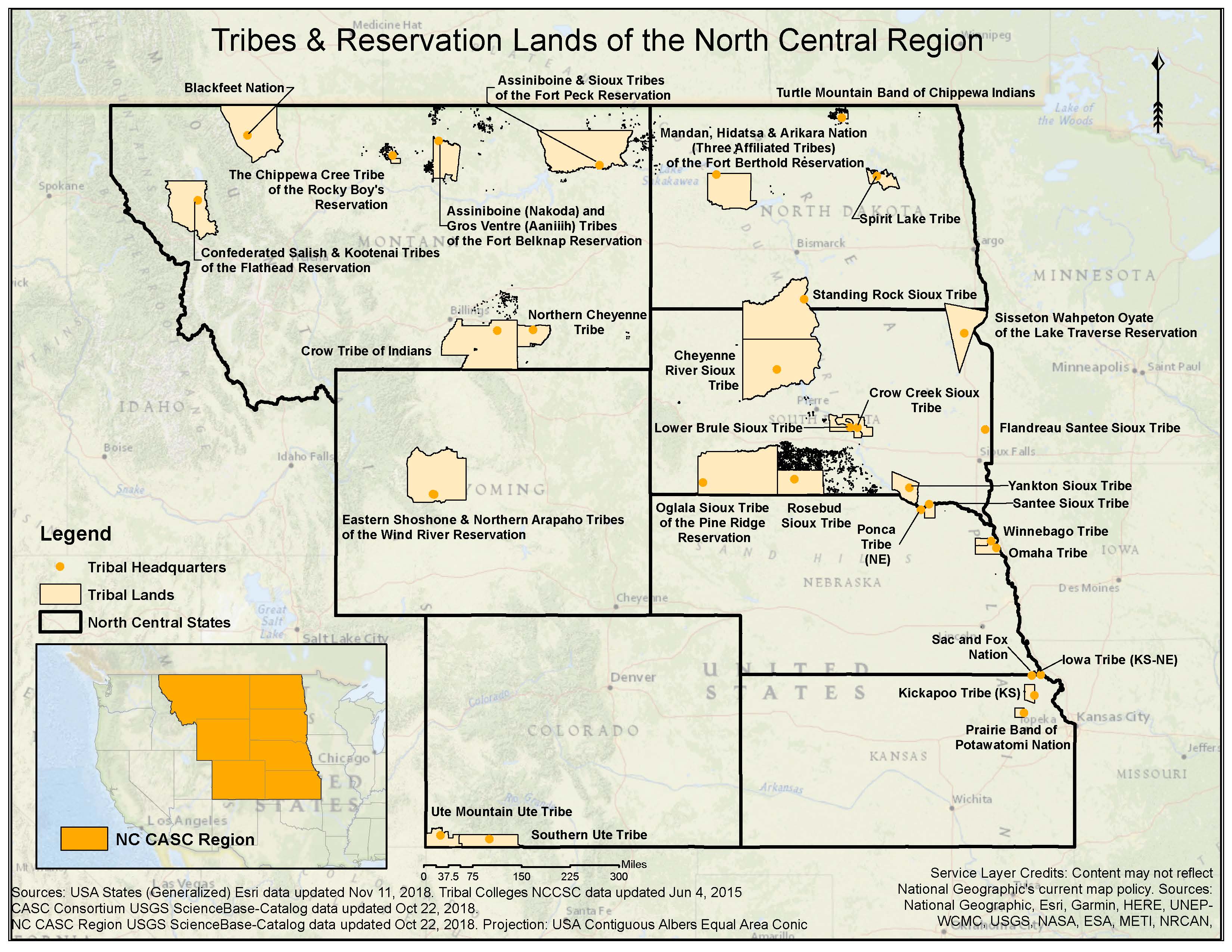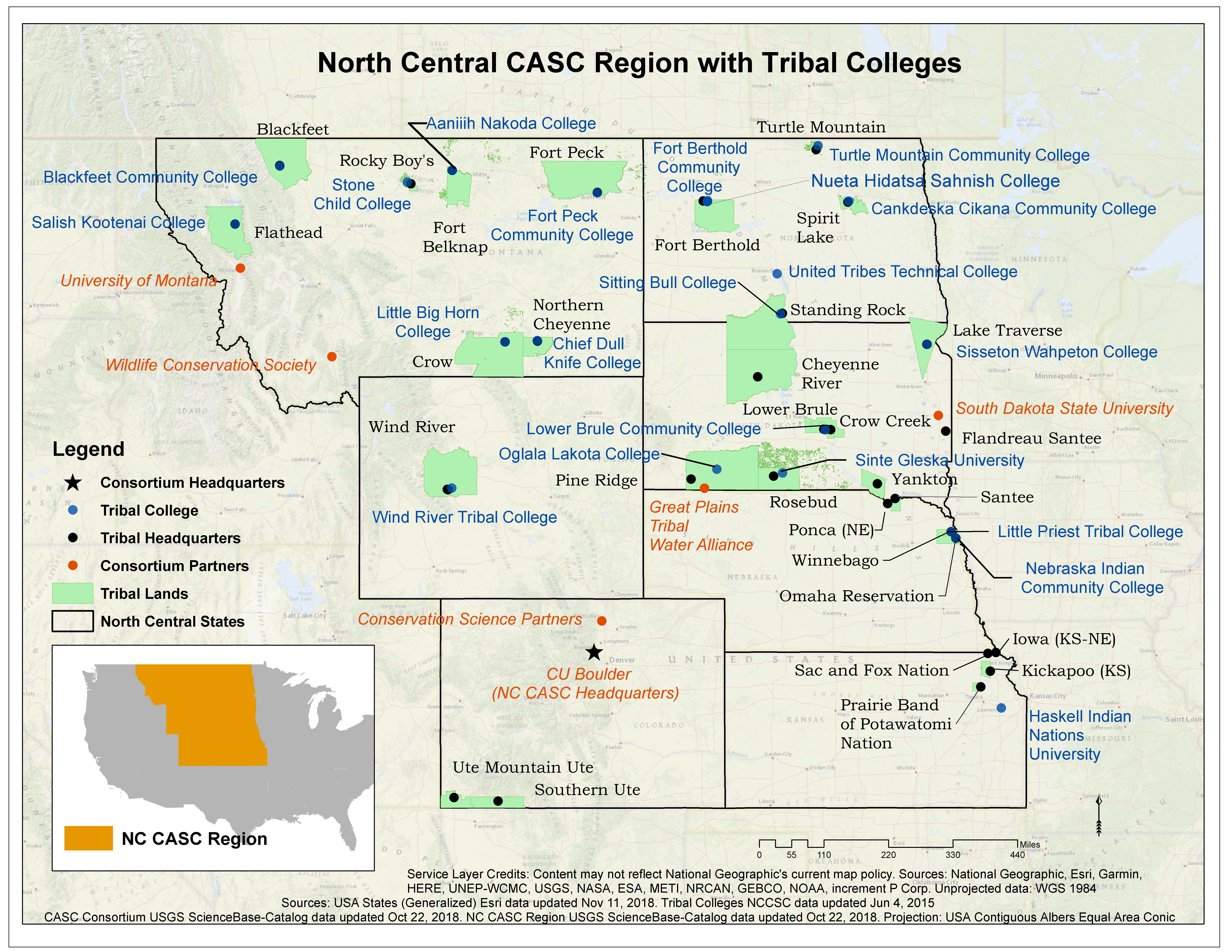Tribal nations are priority science partners of the North Central Climate Adaptation Science Center (NC CASC).
Tribal Nations are unique and distinct partners for the NC CASC since their connection to the environment is often thousands of years old. The NC CASC is committed to working with Tribal partners to create usable, useful, and relevant science to build resilience to anthropogenic climate change. Resources of the NC CASC include:
- Access to climate projections, downscaled modelling, and scenario planning
- Vulnerability assessments, including biological and cultural resource assessments
- Data science and management
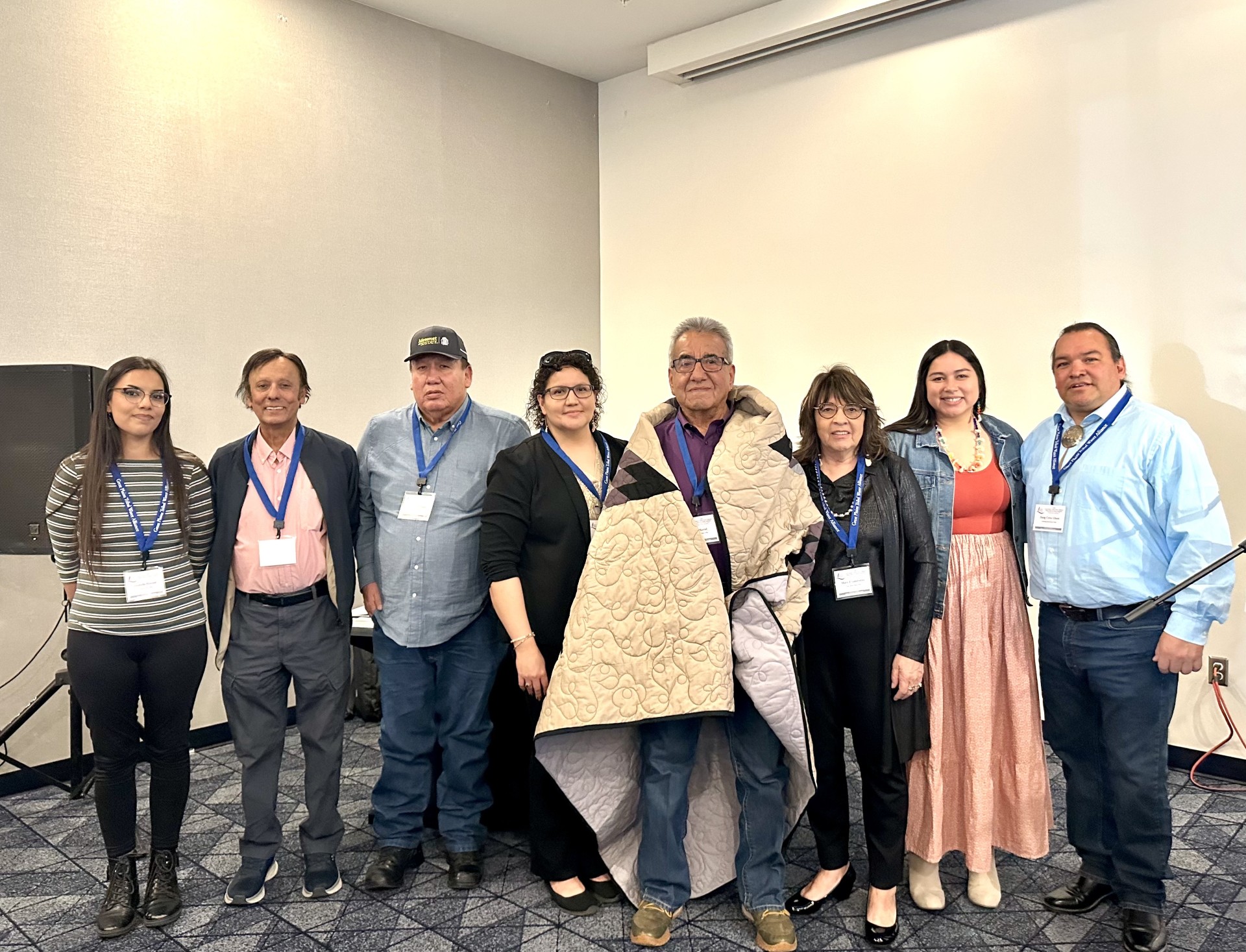
From left to right: Issabelle Provost, Syed Huq, Reno Red Cloud, Reinique Beck, Wes Martel, Mary Jane Gourneau, Kynser Wahwahsuck, Doug Crow Ghost
The NC CASC recognizes the importance and value of Indigenous Knowledges in addressing environmental challenges. We follow the Guidelines for Considering Indigenous Knowledges in Climate Change Initiatives to ensure data sovereignty and best practices for working with sovereign Tribal Nations.
To better understand, support, and facilitate climate resilience in Tribal communities, the NC CASC partners with the Great Plains Tribal Water Alliance (GPTWA) to host a regional Tribal Resilience Liaison. This position is funded by the Bureau of Indian Affairs (BIA) Tribal Resilience Program which created the position in various regions throughout the U.S.
The North Central Tribal Resilience Liaison:
- Supports capacity building for addressing climate change impacts on resources and practices of importance to tribal groups,
- Assists Tribal resource managers to develop climate vulnerability assessments, adaptation plans, proposals and grant applications, curriculum, relevant research, and implementation projects.
The NC CASC supports and facilitates conferences, convenings, and trainings focused on building Tribal climate resilience with resources to deliver appropriate scientific content. Recent events include the 2019 Tribal Climate Camp hosted by the Affiliated Tribes of Northwest Indians (ATNI), the Native American Fish and Wildlife Society (NAFWS) Meeting 2019, and the Lower Missouri River Tribal Climate Adaptation Workshops (2019-2021).
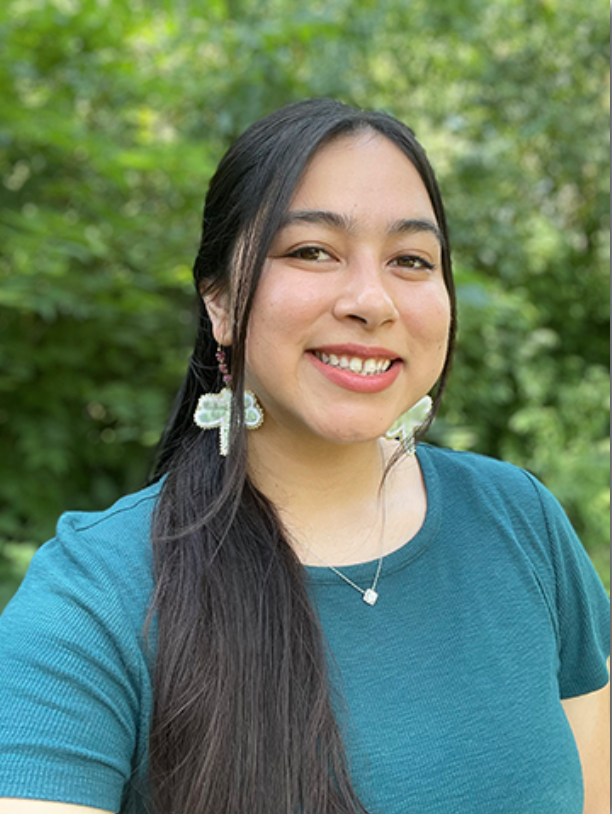
Kynser Wahwahsuck, Tribal Resilience Liaison
Kynser Wahwahsuck works for the Great Plains Tribal Water Alliance as a Tribal Climate Resilience Liaison. She works across the region to connect 32 Federally Recognized Tribal Nations to tools, information, and other resources for building resilience to anthropogenic climate change. Kynser is a member of the Kickapoo Tribe in Kansas and is a descendant of Shoshone and Sac & Fox Tribes. She received her B.S. degree in Environmental Science from Haskell Indian Nations University and her M.A. degree from the University of Kansas with a focus on nitrogen cycling in headwater streams affected by land-use change.
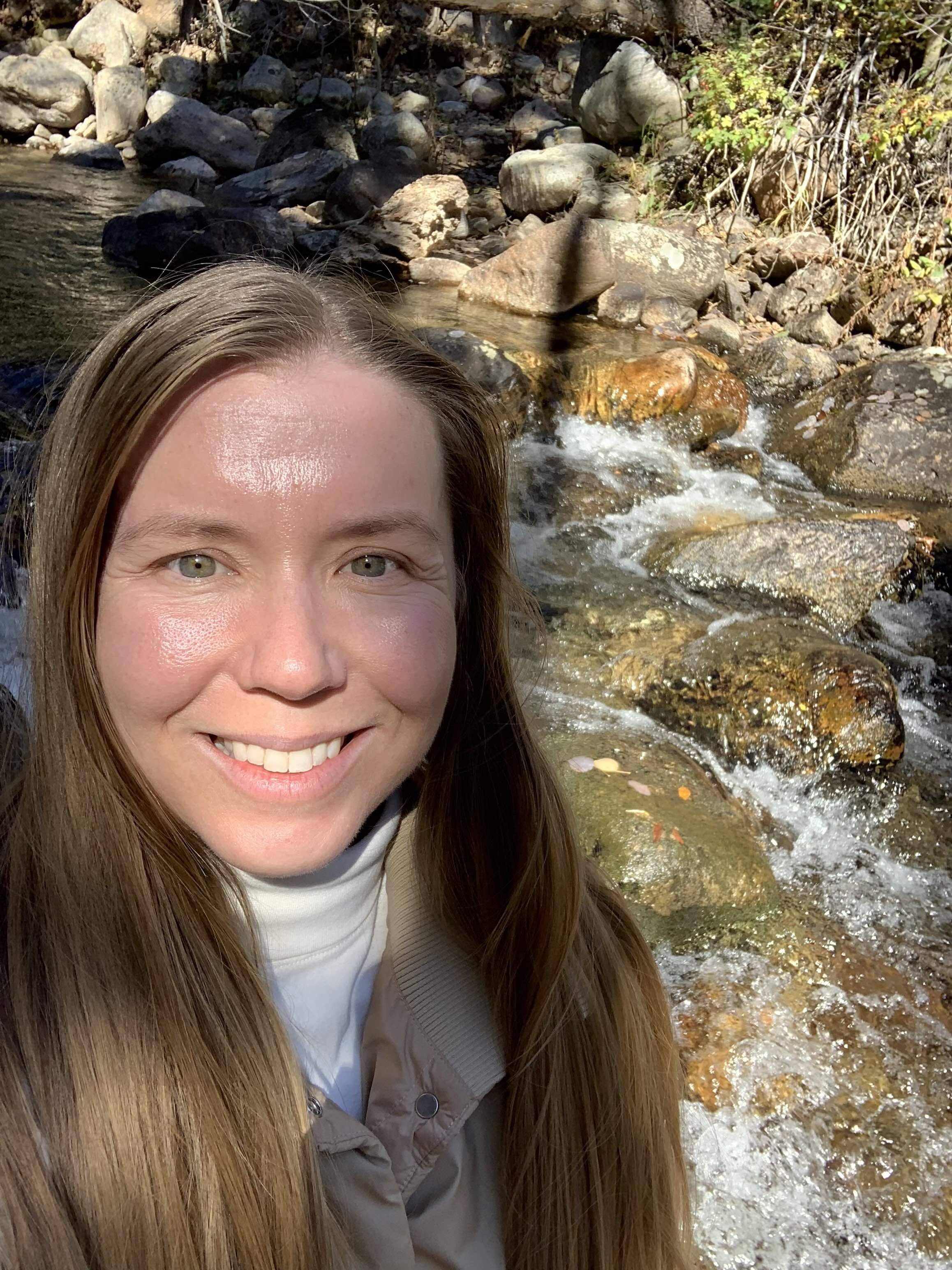
Janna Black, Tribal Resilience Liaison
Janna Black works for the Great Plains Tribal Water Alliance as a Tribal Climate Resilience Liaison. She works across the region to connect 32 Federally Recognized Tribal Nations to tools, information, and other resources for building resilience to anthropogenic climate change. Janna, of Athabaskan descent, earned her M.S. in Environment, Natural Resources, and Society from the University of Wyoming with a Minor in Collaborative Practice. Her work is deeply rooted in a sense of place, emphasizing land-based pedagogies through a kincentric ecological lens. Janna loves spending time in the sun with her family.



